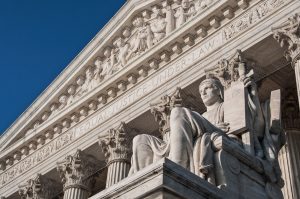Over 100 companies have now filed a legal brief condemning President Donald Trump’s recent travel ban on seven majority Muslim countries. Most of the companies hail from Silicon Valley and include behemoths like Apple, Facebook, Google, Microsoft, Netflix, Twitter, and Uber.
The amicus brief was filed with the U.S. Court of Appeals for the 9th Circuit on Sunday evening and more companies have been adding their support in the days since. The brief argues Trump’s executive order is bad for business in the U.S. and just plain illegal.
“The Order effects a sudden shift in the rules governing entry into the United States, and is inflicting substantial harm on U.S. companies,” the brief argued.
The brief makes a number of arguments in its opposition to the ban. It says Trump’s travel ban is outright unlawful and discriminatory per the Immigration and Nationality Act of 1965. The ban is also a gut punch to the economy and hinders the ability of businesses to attract great talent and compete in the international marketplace. And the brief also spends some time appealing to our collective ideal of the U.S. as a nation of immigrants.
“People who choose to leave everything that is familiar and journey to an unknown land to make a new life necessarily are endowed with drive, creativity, determination—and just plain guts,” the brief states. “The energy they bring to America is a key reason why the American economy has been the greatest engine of prosperity and innovation in history.”
The travel ban denies entry of travelers and refugees from seven predominantly Muslim countries: Iraq, Iran, Libya, Somalia, Sudan, Syria, and Yemen. Its passage on January 27th sparked widespread anger and drew out tens of thousands of people in protests around the country. Last Friday, a federal judge temporarily lifted the ban, letting refugees and visa holders from the seven countries enter the U.S. once more.
Silicon Valley’s new legal act could be a turning point for tech leaders as they struggles to figure out how to deal with a president whose position on a myriad of policies run completely counter to Silicon Valley’s beliefs and business interests.
Immediately following the election, it looked like tech leaders had chosen to take the path of talking it out with the new administration. In December, top executives filed into Trump Tower in a mostly conciliatory first meeting with the President. But they seem to have since learned that slow and rational influencing through dialog doesn’t really work on someone willing to pull the rug out from under you in the course of a day. So let’s see how Silicon Valley’s new strategy of matching bravado with legal resistance goes.











